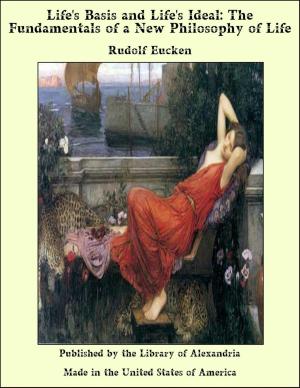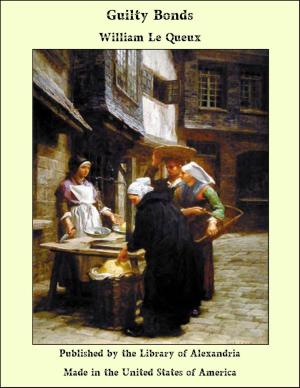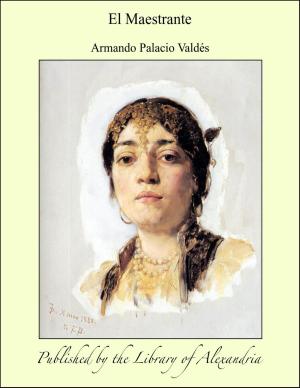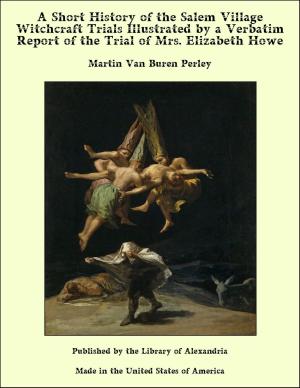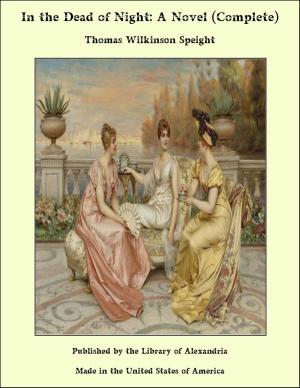Cassell's History of England: From the Fall of Marlborough to the Peninsular War (Volume IV of 8)
Nonfiction, Religion & Spirituality, New Age, History, Fiction & Literature| Author: | Anonymous | ISBN: | 9781465617118 |
| Publisher: | Library of Alexandria | Publication: | March 8, 2015 |
| Imprint: | Language: | English |
| Author: | Anonymous |
| ISBN: | 9781465617118 |
| Publisher: | Library of Alexandria |
| Publication: | March 8, 2015 |
| Imprint: | |
| Language: | English |
The Houses of Parliament reassembled on the 17th of January, 1712, and Anne sent word that she was not able to attend in person, not having recovered sufficiently from her attack of the gout. She announced that the plenipotentiaries were now assembled at Utrecht, and were already engaged in endeavouring to procure just satisfaction to all the Allies according to their several treaties, and especially with relation to Spain and the Indies. This was a delusion, for, by our treaty with the Emperor, we had engaged to secure Spain and the Indies for his son; and it was now, notwithstanding the assurance in her message regarding them, fully determined to give them up to Philip. There was a strong protest in the message against the evil declarations that there had been an intention to make a separate peace, though nothing was more notorious than that the Ministers were resolved, if the Allies did not come to their terms, to go on without them. The message ended by recommending a measure for the restriction of the liberty of the press. Much alarm was expressed at the great licence in the publishing of false and scandalous libels, though the Ministers themselves did not scruple to employ the terrible pen of Swift. On the 6th of January there landed at Greenwich an illustrious visitor to the Court on an unwelcome errand—namely, Prince Eugene. The Allies, justly alarmed at the Ministerial revolution which had taken place in England, and at the obvious design of the Tories to render abortive all the efforts of the Whigs and the Allies through the war, from mere party envy and malice, sent over Eugene to convince the queen and the Government of the fatal consequences of such policy. Harley paid obsequious court to the prince as long as he hoped to win him over. He gave a magnificent dinner in his honour, and declared that he looked on that day as the happiest of his life, since he had the honour to see in his house the greatest captain of the age. The prince, who felt that this was a mean blow at Marlborough, replied with a polite but cutting sarcasm, which must have sunk deep in the bosom of the Lord Treasurer, "My lord, if I am the greatest captain of the age, I owe it to your lordship." That was to say, because he had deprived the really greatest captain of his command. The queen, though she was compelled to treat Eugene graciously, and to order the preparation of costly gifts to him as the representative of the Allies, regarded him as a most unwelcome guest, and in her private circle took no pains to conceal it. The whole Tory party soon found that he was not a man to be seduced from his integrity, or brought to acquiesce in a course of policy which he felt and knew to be most disgraceful and disastrous to the peace of Europe; and being fully convinced of this, they let loose on the illustrious stranger all the virulence of the press. Eugene returned to the Continent, his mission being unaccomplished, on the 13th of March.
The Houses of Parliament reassembled on the 17th of January, 1712, and Anne sent word that she was not able to attend in person, not having recovered sufficiently from her attack of the gout. She announced that the plenipotentiaries were now assembled at Utrecht, and were already engaged in endeavouring to procure just satisfaction to all the Allies according to their several treaties, and especially with relation to Spain and the Indies. This was a delusion, for, by our treaty with the Emperor, we had engaged to secure Spain and the Indies for his son; and it was now, notwithstanding the assurance in her message regarding them, fully determined to give them up to Philip. There was a strong protest in the message against the evil declarations that there had been an intention to make a separate peace, though nothing was more notorious than that the Ministers were resolved, if the Allies did not come to their terms, to go on without them. The message ended by recommending a measure for the restriction of the liberty of the press. Much alarm was expressed at the great licence in the publishing of false and scandalous libels, though the Ministers themselves did not scruple to employ the terrible pen of Swift. On the 6th of January there landed at Greenwich an illustrious visitor to the Court on an unwelcome errand—namely, Prince Eugene. The Allies, justly alarmed at the Ministerial revolution which had taken place in England, and at the obvious design of the Tories to render abortive all the efforts of the Whigs and the Allies through the war, from mere party envy and malice, sent over Eugene to convince the queen and the Government of the fatal consequences of such policy. Harley paid obsequious court to the prince as long as he hoped to win him over. He gave a magnificent dinner in his honour, and declared that he looked on that day as the happiest of his life, since he had the honour to see in his house the greatest captain of the age. The prince, who felt that this was a mean blow at Marlborough, replied with a polite but cutting sarcasm, which must have sunk deep in the bosom of the Lord Treasurer, "My lord, if I am the greatest captain of the age, I owe it to your lordship." That was to say, because he had deprived the really greatest captain of his command. The queen, though she was compelled to treat Eugene graciously, and to order the preparation of costly gifts to him as the representative of the Allies, regarded him as a most unwelcome guest, and in her private circle took no pains to conceal it. The whole Tory party soon found that he was not a man to be seduced from his integrity, or brought to acquiesce in a course of policy which he felt and knew to be most disgraceful and disastrous to the peace of Europe; and being fully convinced of this, they let loose on the illustrious stranger all the virulence of the press. Eugene returned to the Continent, his mission being unaccomplished, on the 13th of March.


